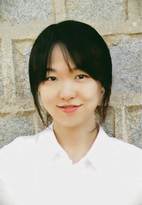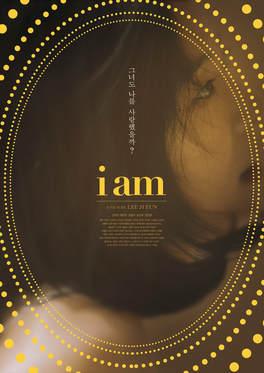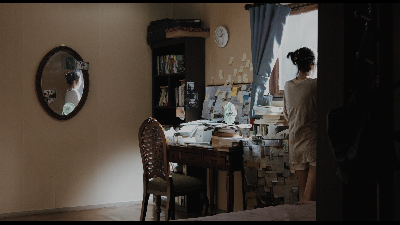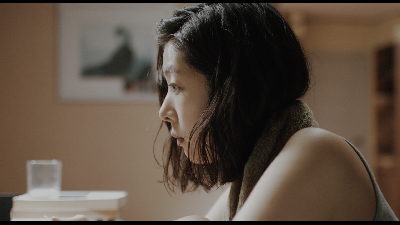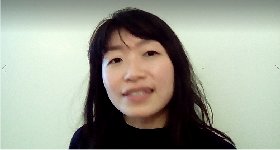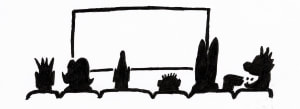|
I Am won a BIAFF Diamond and the Daily Mail trophy, Best Story, Best Photography and Best Acting (by Shin Yu Ju) awards.
|
Lee Ji Eun on making I Am
|
Tell us about your background in film.
I’m a student majoring in film directing at a graduate school of Advance Imaging Science at Chung-Ang University in Korea. Before I entered the school, I made several other experimental short films including film dramas and documentaries and after entering the school, I shot two short films as part of the curriculum. I Am is the second one. The graduation work I’m currently working on is also a short film and above all I hope it will be fresh and touching. How did you find the idea for the film and develop the story? (It is very unusual for Western audiences.) It’s rather amusing for me to know that this story is very unfamiliar for Western audiences! The idea for I Am flashed through my mind when I was in my room. As I was writing scripts, I had to spend most of my time staying in my room helplessly and that was when I thought that I myself was not any different from all the un-moving objects around me. Among those objects, there was one thing that seemed alive and it was a mirror. I felt it was dramatic to see the mirror changing its image depending on my actions and my figure in the mirror looking different depending on my feelings. And I thought it’d be great to pour out all my troubles with a mirror as a subject. |
|
Were you worried that you might not be able to make the character of the mirror believable?
Of course, I had to worry about how I could deliver the feeling of the mirror to audiences, especially when the mirror was just an object. It was neither an animation nor a Hollywood fantasy movie so there was only one way. Imagine I’m the mirror in the film. How can I express my love to that woman when I cannot move? And imagine I’m the woman. Do I feel sincerity from the words and behaviour of the mirror? Based on these rules, I placed everything including shooting, lighting, CG, music, clothes, props, makeup, acting, etc. in a limited place. It was a lot of fun like drawing pictures on white paper. |
How did you find the actress Shin Yu Ju? Was it hard to convince her to take part?
I met her for the first time in an audition. I had auditioned several other actresses previously but I had to conclude that no matter how well they acted, I could not work with them as they were not able to understand the fantasy aspect of this film. (There was even one actress who actually said that talking alone in a room just doesn’t make sense. Haha) However, Shin Yu Ju caught the fantasy aspect of this film above everything else and had a favourable feeling toward it. She understood the emotional change of her character well and was immersed in emotion at the filming site.
Was the film completely scripted or was there some improvisation?
The film was completely scripted before shooting and all scenes in the scenario were shot. However, the biggest changes made while editing were cutting out the prologue-like scene where the mirror and woman meet for the first time (as it was too explanatory) and completely rewriting the narration of the mirror. I sat in a coffee shop for 3 days with an actor doing the mirror’s role, watching an edited version and rewrote the narration to best deliver the feelings of the mirror.
I met her for the first time in an audition. I had auditioned several other actresses previously but I had to conclude that no matter how well they acted, I could not work with them as they were not able to understand the fantasy aspect of this film. (There was even one actress who actually said that talking alone in a room just doesn’t make sense. Haha) However, Shin Yu Ju caught the fantasy aspect of this film above everything else and had a favourable feeling toward it. She understood the emotional change of her character well and was immersed in emotion at the filming site.
Was the film completely scripted or was there some improvisation?
The film was completely scripted before shooting and all scenes in the scenario were shot. However, the biggest changes made while editing were cutting out the prologue-like scene where the mirror and woman meet for the first time (as it was too explanatory) and completely rewriting the narration of the mirror. I sat in a coffee shop for 3 days with an actor doing the mirror’s role, watching an edited version and rewrote the narration to best deliver the feelings of the mirror.
|
How long did it take to complete? Did you film chronologically to help the actress? (It must have been very tiring for her.) We filmed it in Dec 2015 for the second part and it was completed on the 1st of Aug 2016. It took about 8 months in total. It was chronologically filmed for the convenience of the actress as well as the need for changing the seasons. The actress must have felt tired and got stressed with having to change her clothes, makeup and wait for the set changes at each change of season, and as the character's feelings are rapidly changed with each season. |
Who did the cinematography? And editing?
The director of photography, Lee Ju Hwan was introduced to me by a producer. He graduated from the Korea Academy of Film Arts and has experience in shooting many short films. An independent feature that he shot was screened at various film festivals last year. The editor, Won Chang Jae was also introduced to me by a producer and he has experience in editing many short and long films. These experienced people listened attentively to me who was the director but still a student and they spent a lot of time communicating and agonising in order to express everything better.
What is the message you want the film to convey?
On the surface, this film is a fantasy story about the love of a mirror towards a woman but I tried to talk about ‘self-love’ in it.
Is there anything else you'd like to share?
BIAFF is an extremely meaningful and valuable film festival where I showed my film to overseas audiences for the first time. ‘What is this movie talking about?’, ‘What on earth am I doing with a mirror?’ I was frustrated and thought about abandoning it numerous times even when it was being edited. I still cannot believe this film, which was completed after months of frustration and inferiority complex has gained a good response from the opposite side of the earth, in the UK. In the future whenever I feel like giving up something, I’ll recall the courage and encouragement BIAFF has given me and do whatever it takes to complete my goals.
Next steps for you?
I’ve been writing the script for my graduation work and doing a part time job in order to raise money for its production. I hope this film gets into BIAFF once again!
Lee Ji Eun
June 2017
The director of photography, Lee Ju Hwan was introduced to me by a producer. He graduated from the Korea Academy of Film Arts and has experience in shooting many short films. An independent feature that he shot was screened at various film festivals last year. The editor, Won Chang Jae was also introduced to me by a producer and he has experience in editing many short and long films. These experienced people listened attentively to me who was the director but still a student and they spent a lot of time communicating and agonising in order to express everything better.
What is the message you want the film to convey?
On the surface, this film is a fantasy story about the love of a mirror towards a woman but I tried to talk about ‘self-love’ in it.
Is there anything else you'd like to share?
BIAFF is an extremely meaningful and valuable film festival where I showed my film to overseas audiences for the first time. ‘What is this movie talking about?’, ‘What on earth am I doing with a mirror?’ I was frustrated and thought about abandoning it numerous times even when it was being edited. I still cannot believe this film, which was completed after months of frustration and inferiority complex has gained a good response from the opposite side of the earth, in the UK. In the future whenever I feel like giving up something, I’ll recall the courage and encouragement BIAFF has given me and do whatever it takes to complete my goals.
Next steps for you?
I’ve been writing the script for my graduation work and doing a part time job in order to raise money for its production. I hope this film gets into BIAFF once again!
Lee Ji Eun
June 2017
I Am was directed by a young woman film maker and I would say the quiet and yet tense story telling might be something unfamiliar to European audiences. That is something noticeable in Korean independent cinema rather than Korean commercial cinema. I think there is a tradition in the best film schools that encourages that sort of story telling – quiet and yet powerful.
There is also animism. The mirror is talking, it’s alive and has emotions. I think this animism, like how you associate with objects and nature in Korea and Japan is a little different. Rather than objectifying them it is more a dialogue between humans and nature and objects. So that might be reflected in this film.
Korea has a really big film industry from independent to commercial. We do produce loads of films each year and there are a few very strong film schools where the student’s work goes everywhere to European Festivals and so on.
Cho Hyun Jin
There is also animism. The mirror is talking, it’s alive and has emotions. I think this animism, like how you associate with objects and nature in Korea and Japan is a little different. Rather than objectifying them it is more a dialogue between humans and nature and objects. So that might be reflected in this film.
Korea has a really big film industry from independent to commercial. We do produce loads of films each year and there are a few very strong film schools where the student’s work goes everywhere to European Festivals and so on.
Cho Hyun Jin

